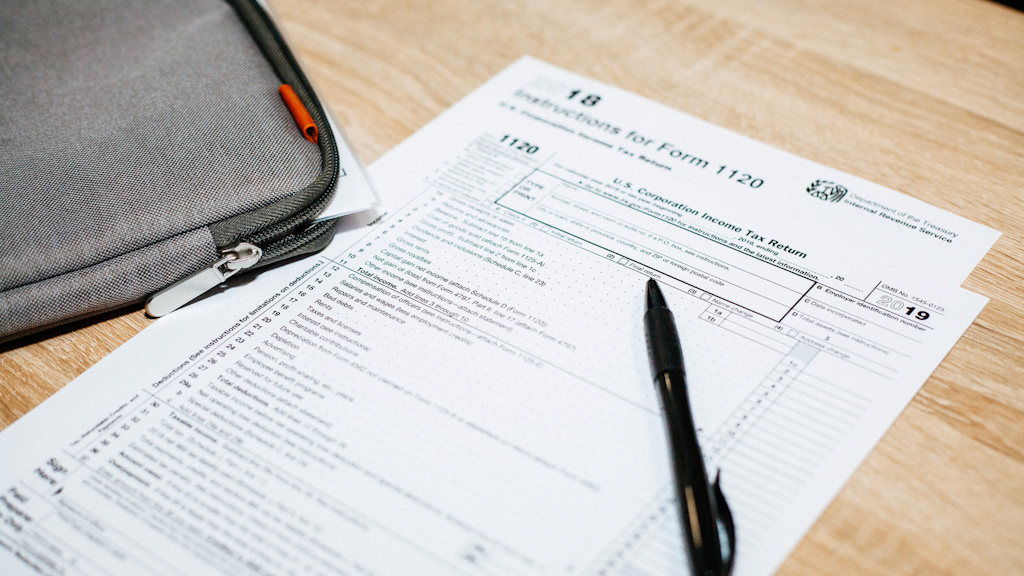To kick off Majority’s financial literacy month in April, we’re starting off with the biggest elephant in the room, TAXES!
Every year, we have to file taxes, but some might be wondering how to file for a year like 2020 when many we left without work, shelter in place, reduced income, and stimulus checks.
To get some answers, MAJORITY spoke with tax expert and owner of Zanda Tax, Kenneth Omoruyi, as he shared some tips for filing your 2020 taxes.
(Read here for more about Zanda Tax and Kenneth’s story on becoming a tax pro.) Now, let’s get those tips and questions.

1) Gather all your required documents
“Make sure you gather all required documents, why I say that is because almost everybody was [ or is ] applicable to receive unemployment. Now that people are filing their taxes, they are surprised when we [Zanda Tax] ask where the proof of your unemployment is. We want to see the 1099G statement.”
Such documentation is important because many people are unaware that “unemployment benefits are taxable” and you have to report all revenue that was received.
Kenneth emphasizes that having the necessary documents allows for a smoother filing process. This is important because many people, “don’t take the federal taxes withheld, so [the IRS] didn’t withhold any money.”
Not being aware of how you file and not having the right documents can land you in the position of owing money.
2) Will the stimulus impact the way you file?
“A lot of people did not get stimulus, for the people who did not get [a stimulus] this tip is for you. If you received a stimulus, fine, it’s not taxable and it won’t be recorded as an income on your tax return. But if you did not get it, you can actually claim this on your tax return.”
How does this work?
“If you didn’t get a [first or second stimulus], it will be applied to your filing as a credit. This is actually called a rebate credit.”

3) Claim your dependants properly
“If you had a child in 2020, you may be able to include the recovery rebate credit” to your tax return. “If you had a child in 2020, you are owed $600 in credit. When you file your taxes make sure your [accountant or tax filer] is aware of your child.”
4) Did you work from home?
Working from home is the new normal that the pandemic has possibly made permanent. Kenneth says that, “there is something called the home-office-deduction” he continued, “ If you are working a W-2 job you can not really apply for this deduction… as a W-2 worker there used to be a deduction which they called a ‘reimbursed employee expenses.”
This has since changed.
“But if you have a 1099 job, and you work a lot from home, you can claim the home office deduction. If you have your own business or work as a 1099 for an employer, use this deduction.”
5) Look for a tax person that is licensed
There are countless DIY tax softwares and programs, yet the best way to optimize your returns and file legally is to use a trusted source.
“Making a mistake on your taxes or not maximizing potential tax savings can be costly. A licensed professional has their reputation and credentials at stake whenever they prepare and add their signature to a customer's tax return. Unlicensed tax preparers don't have the same level of accountability and can be more susceptible to preparing tax returns in a way that puts an individual at risk for IRS audit.”

6) Did you do something good in 2020?
As the world united by communally helping each other during the pandemic, many people shared PPE equipment, palatives, and clothing. All of the contributions may be written off as a deduction. Here’s what you need to know.
“You can claim charitable contributions without itemizing. Before the CARES Act passed, you typically could only deduct charitable contributions if you itemized your tax deductions. The CARES Act added a provision that allows taxpayers to deduct charitable contributions up to
$300 in cash without itemizing. It must be a cash donation (not an item) to a tax exempt organization. It would be helpful to have a record of the donation.”
7) Review how much you actually earned in 2020
During 2020, many people were (and still are) surviving off of unreliable income. Kenneth discusses further:
“Earned Income Tax Credit (EITC) is traditionally based on a percentage of your earned income (wages+compensations). However, due to the pandemic, some individuals may have earned less in 2020 than typical. The US Congress passed an Act (Taxpayer Certainty and Disaster Tax Relief Act of 2020) that allows you to "lookback" and choose the year (either 2019 or 2020) to determine how your EITC will be generated.”
In a nutshell, when approaching your taxes for 2020, simply ensure that you follow the legal steps for reporting all aspects of income and make sure to consult with the experts before submitting your taxes.
Still need information and want to speak to an expert directly? Visit www.zandatax.com!
And if you need an account to deposit your tax refund, check out MAJORITY’s FDIC-insured spend account with no overdraft or minimum balance fees, just effortless savings!


